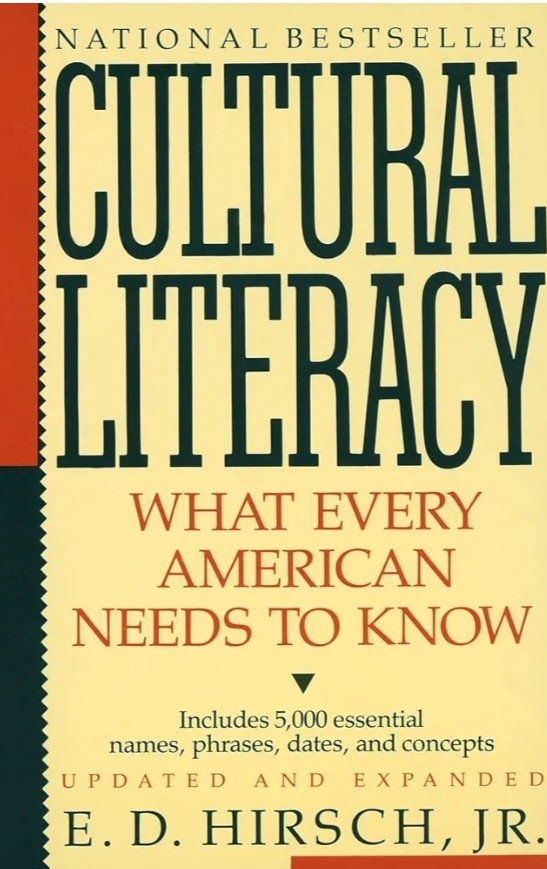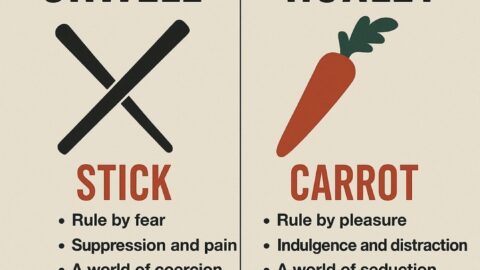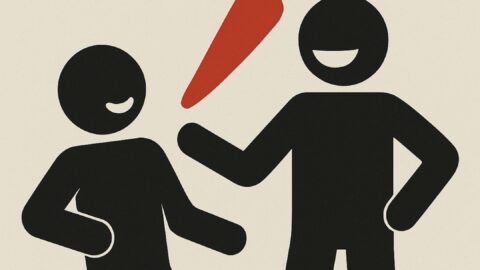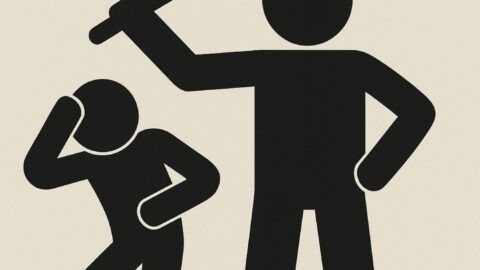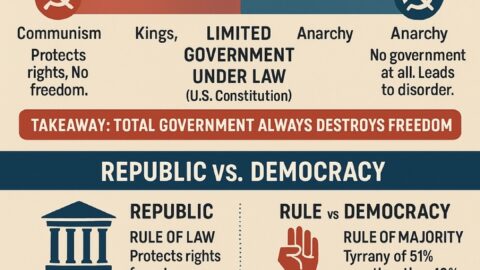Cultural Literacy: What Every American Needs to Know by E.D. Hirsch Jr. is a landmark work that addresses the importance of shared cultural knowledge for a well-functioning society. Hirsch, an educator and scholar, argues that a certain body of knowledge is essential for understanding and participating fully in society. He coined the term “cultural literacy” to describe the idea that individuals must possess a base level of knowledge about their culture, history, literature, and traditions in order to communicate effectively, engage in meaningful conversations, and participate fully in democratic life.
Core Thesis of the Book:
At its core, Hirsch’s argument is that a lack of cultural literacy creates divides in society, as it prevents individuals from being able to effectively engage in conversations and understand the foundational ideas and assumptions of their culture. According to Hirsch, cultural literacy is crucial not only for personal education but for the smooth functioning of a democratic-republic society.
In essence, Hirsch argues that knowledge is power—but not just any knowledge; it is shared knowledge that enables individuals to communicate, understand each other, and actively participate in the community and republic.
The Concept of Cultural Literacy:
Cultural literacy, in Hirsch’s view, is the knowledge that people should have in common to participate fully in society. He focuses on the idea that education should aim to equip individuals with a base level of knowledge about their culture, including its history, literature, art, values, and key events. This base of shared knowledge allows people to communicate effectively, as it provides a common set of references that can be drawn upon in conversations.
Importance of Shared Knowledge:
Hirsch emphasizes that knowledge is cumulative, and literacy goes beyond the ability to read and write; it encompasses a deep, foundational understanding of the world around us. A person who is culturally literate can make sense of things like literature, history, current events, and even everyday conversations. Without this shared body of knowledge, there is a breakdown in communication, as individuals may fail to understand references, metaphors, or the historical context behind certain ideas.
- The Democratic-Republic Society:
Hirsch argues that cultural literacy is particularly important for the health of a democratic-republic society. In order to vote, debate, and make informed decisions about the future of the country, citizens need to understand the cultural and historical context in which those decisions are made. Without this knowledge, democractic-republic risks becoming fragmented, as individuals may make decisions based on misinformation, misunderstandings, or a lack of context. - The Role of Schools and Education:
Hirsch believes that education should go beyond teaching basic skills like reading and writing and should focus on imparting this shared knowledge. In his view, schools should teach children not just how to read but what to read, focusing on the essential cultural knowledge that will enable them to participate effectively in society.
Why Cultural Literacy Matters:
Hirsch’s work arose in part from his concerns about educational trends in the 20th century, particularly the rise of progressive education. While progressive education focused on fostering creativity and critical thinking, Hirsch feared that it often neglected the teaching of essential facts and core knowledge. He believed that students needed a foundation of shared knowledge to develop these higher-level thinking skills, which is why cultural literacy is so important.
- A Shared Vocabulary:
Cultural literacy helps ensure that people have a shared vocabulary that they can use to navigate life in a complex society. This shared vocabulary is built on common knowledge of history, literature, and other key cultural touchstones. For example, if someone mentions the phrase “the road to Damascus,” cultural literacy helps individuals understand that this refers to a life-changing transformation, originating from a famous biblical story. Without this shared understanding, communication can become difficult, and the significance of such phrases can be lost. - Preparation for the Future:
Hirsch also stresses that cultural literacy prepares students for life beyond the classroom, whether in the workforce, in public discussions, or in making informed personal decisions. It enables individuals to think critically about the world and to engage with the content they encounter in various aspects of their lives.
Cultural Literacy and Society:
Hirsch’s book also addresses the societal impact of cultural illiteracy, particularly its role in reinforcing inequality. He argues that those who lack cultural literacy are at a significant disadvantage in many areas of life. For instance, a person who is not familiar with the classics of literature, history, or the Bible may struggle in conversations, in education, or in navigating the media, which often assumes a certain level of cultural literacy.
- Cultural Literacy and Media:
In modern society, media—whether it’s news, entertainment, or advertisements—often assumes a baseline of cultural literacy. Cultural illiteracy, therefore, can lead to a lack of comprehension of the world around us. Media literacy, according to Hirsch, is crucial, and understanding the historical and cultural references embedded in media can give individuals the tools they need to navigate the complexities of modern life.
Examples of Cultural Literacy:
In his book, Hirsch provides a list of key facts and concepts that he believes every American should know in order to be culturally literate. These include:
- Historical events (e.g., the Civil War, the founding of the United States)
- Notable figures (e.g., George Washington, Abraham Lincoln)
- Literary works (e.g., Shakespeare, the works of Mark Twain)
- Philosophical ideas (e.g., democracy, liberty, justice)
- Basic principles of science, government, and law
By knowing these facts, individuals can engage in meaningful conversations, understand references in books, movies, and the media, and generally participate more fully in society.
Cultural Literacy in Education:
Hirsch’s emphasis on the importance of cultural literacy has sparked debates over the role of education in society. He advocates for a knowledge-based curriculum, arguing that schools should be teaching this foundational knowledge explicitly rather than leaving it up to students to pick up through experience or exposure. In his view, the accumulation of knowledge over time creates better opportunities for individuals to think critically, make informed decisions, and engage meaningfully with others.
Conclusion:
Cultural Literacy: What Every American Needs to Know challenges the educational system and society to prioritize a shared, essential body of knowledge in order to preserve meaningful communication and healthy civic engagement. Hirsch believes that cultural literacy is not only key for individual success but also for the well-being of society as a whole, particularly in a democracy where informed citizens are essential.
Through cultural literacy, we can understand and engage with our world in a more meaningful way, fostering connections and communication that transcend individual differences. It’s not about memorizing random facts but about acquiring the tools needed to make sense of the world and participate in it fully.

